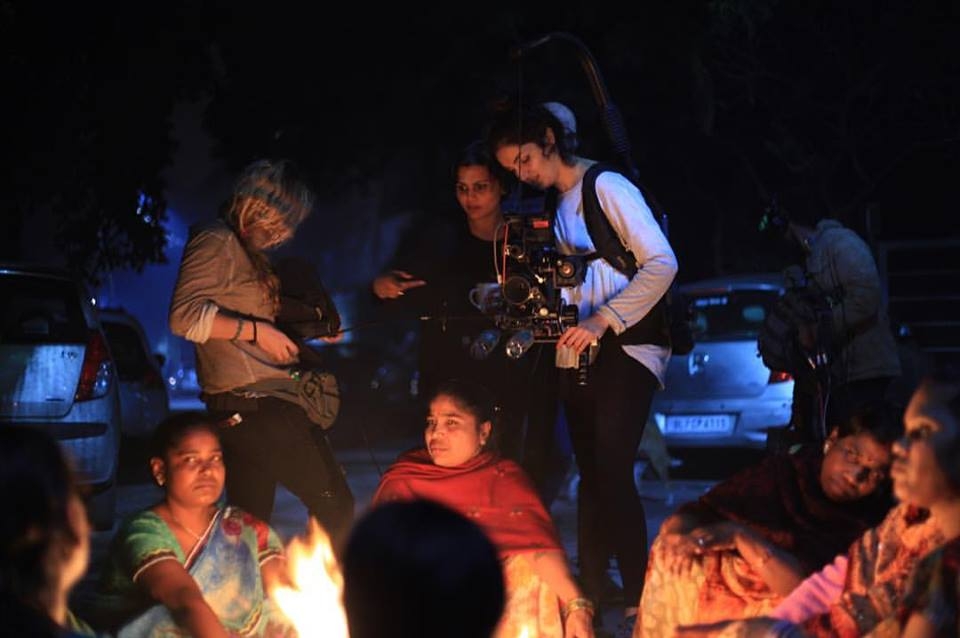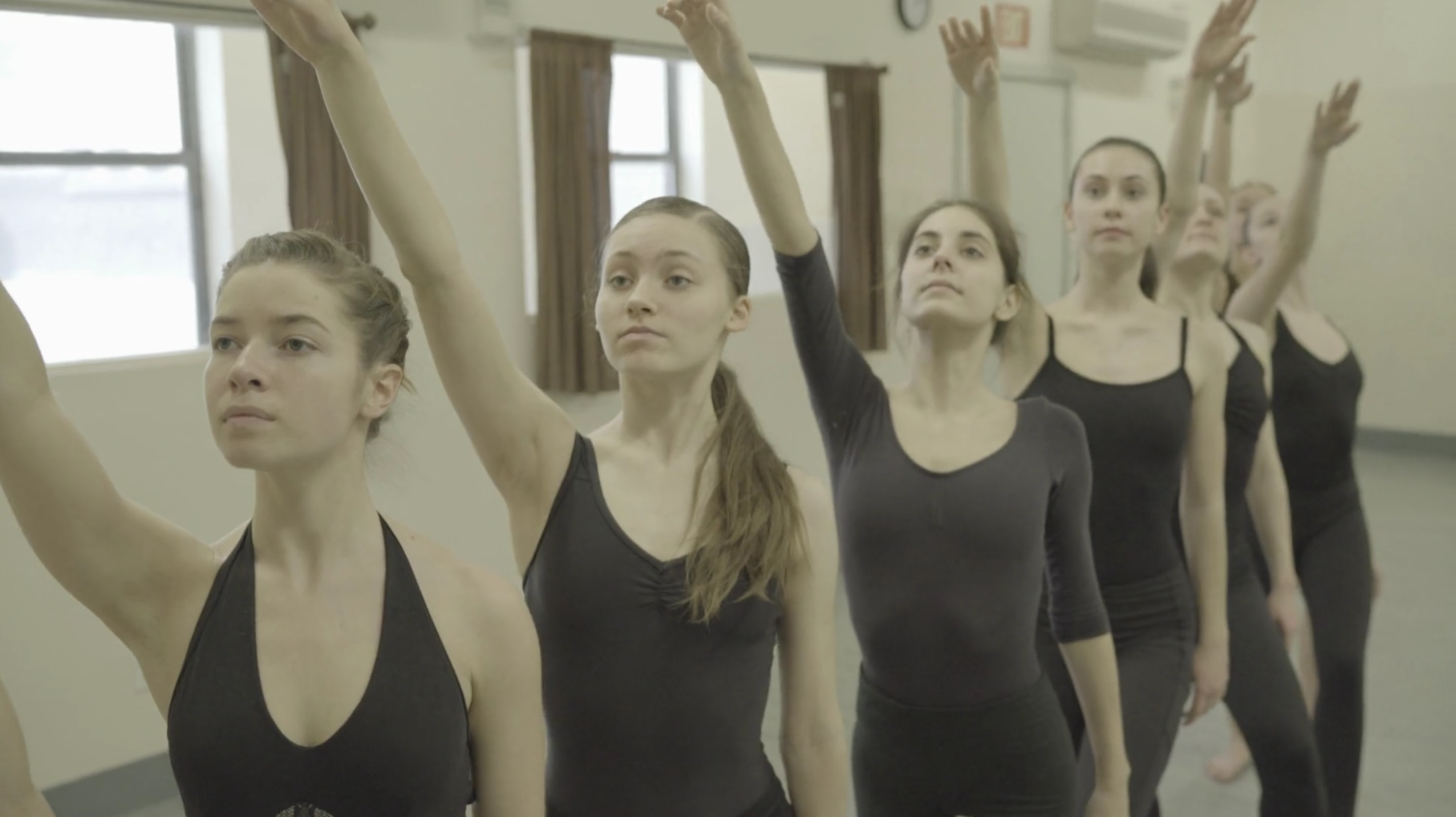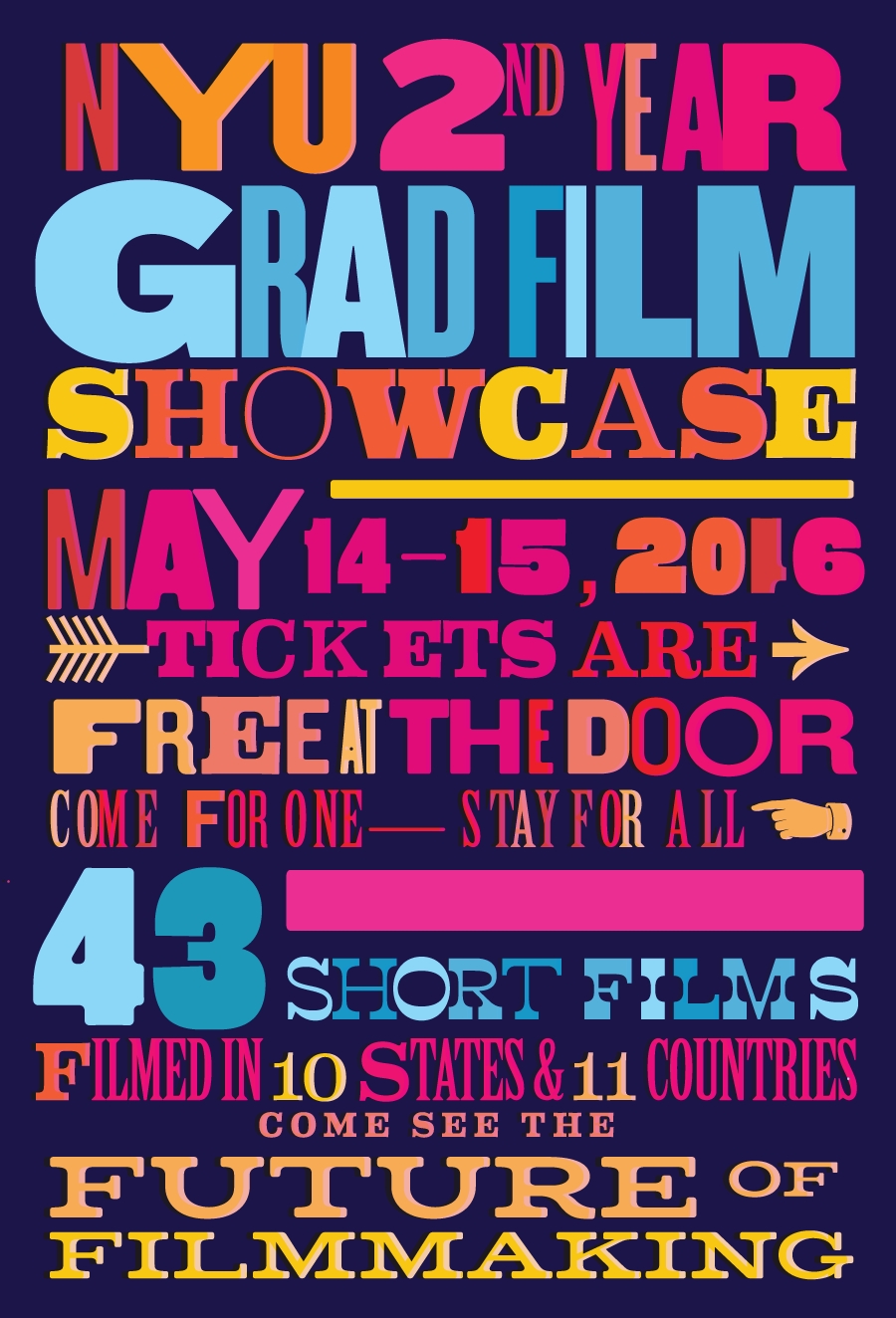
What inspires you?
“The talents around me in this school inspire me. The diverse voices and styles of making films motivate me so much.” -Sarra Alshehhi
“My family, films like Rosellini's Roma Città Aperta and Trier’s Breaking The Waves, my fellow filmmakers, New York City, the painter Edgar Degas.” -Stephanie Bollag
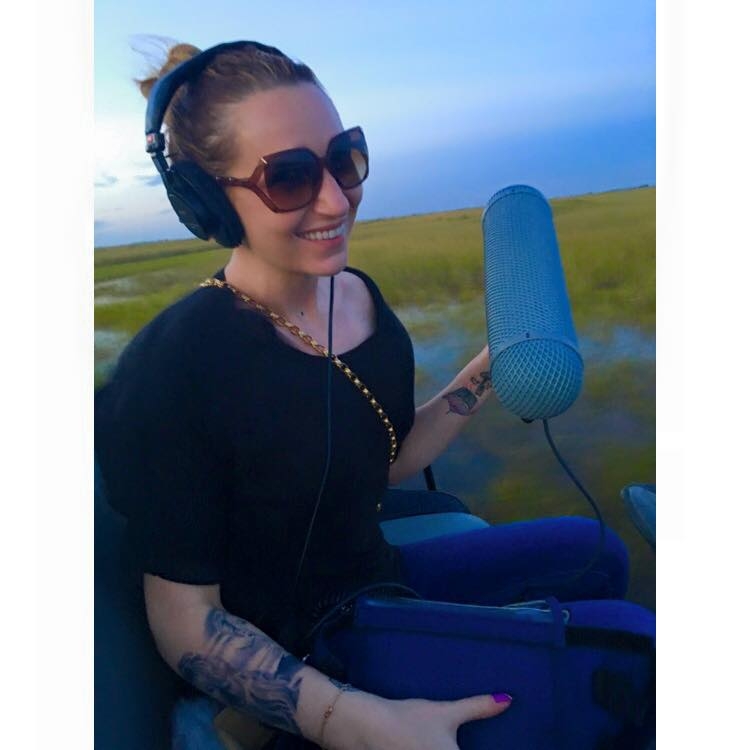
“I know it sounds corny, but my primary inspirations right now are my writing, editing and directing teachers. I’ve learned that I will never please them, but I enjoy contemplating the different directions they would each send me. If you’re asking me, who do I copy when I write, I think a lot about the late work of the playwright Athol Fugard, particularly, MY CHILDREN, MY AFRICA and THE PAINTED ROCLS AT REVOLVER CREEK. I aspire to smash the political and the personal together the way he does and write about people who are different from myself, truly, without idealizing or stereotyping them.” –David Stein
“Derek Jarman and Jessi Colter.” –Jeff Verlanic
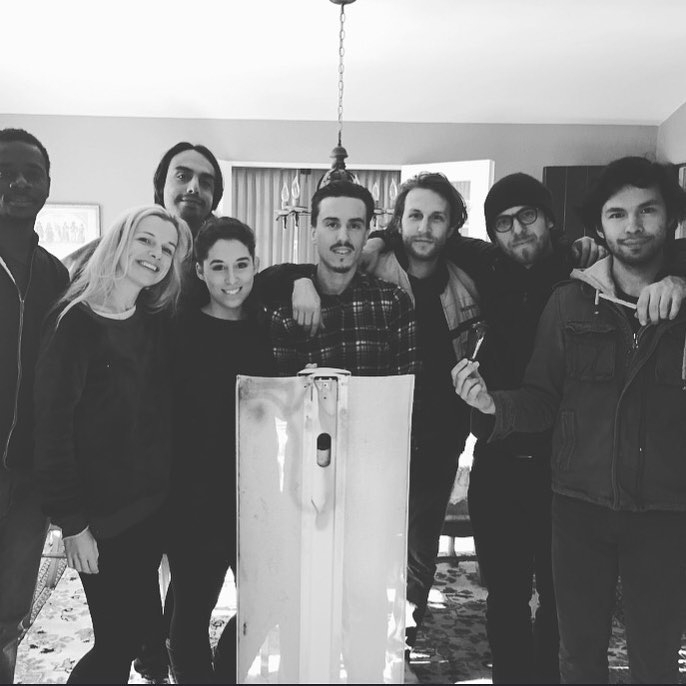
“People I love, innocence of heart, flowers, water (seas, oceans, rivers, lakes, water in the glass, shower, rain...).” -Nataliya Babenko
“The resilience of humanity.” -PJ Norton
“Nature has always been a big inspiration to me. The way it can be so wild and calm at the same time. It’s kind of scary, but at the same time, it sort of draws me in.” -Rikke Louise Schjødt
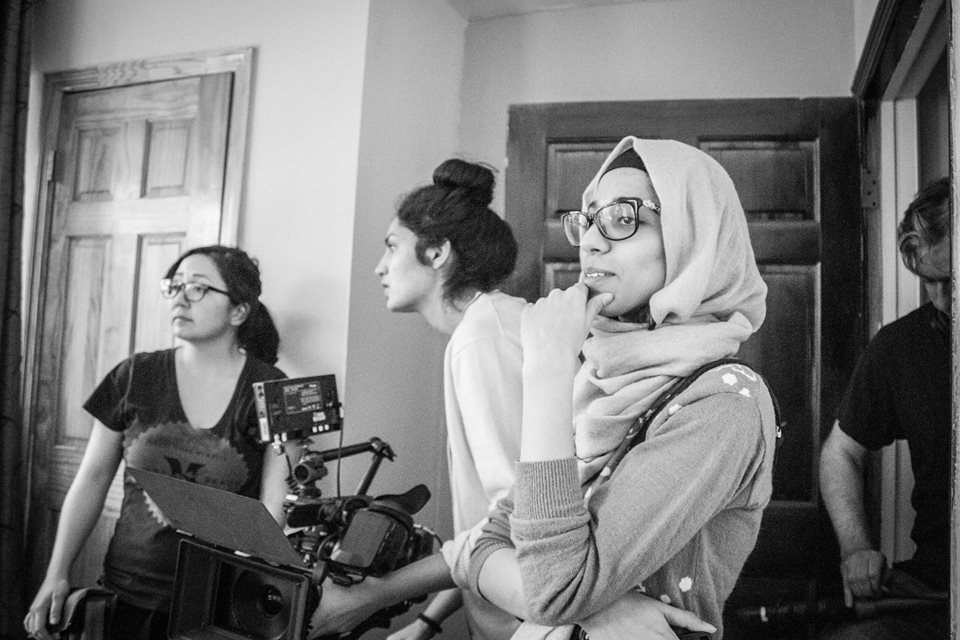
What was your biggest lesson/triumph while making the second-year film?
“For the first time in my filmmaking career, I decided to make a story that spoke about my personal experience. Having that connection to the film made me hyperaware of any inauthenticity from my actors and allowed me to make suggestions off the top of my head that I knew came from a true place. I truly can say I learned to trust my instincts as a director.” -Raven Johnson
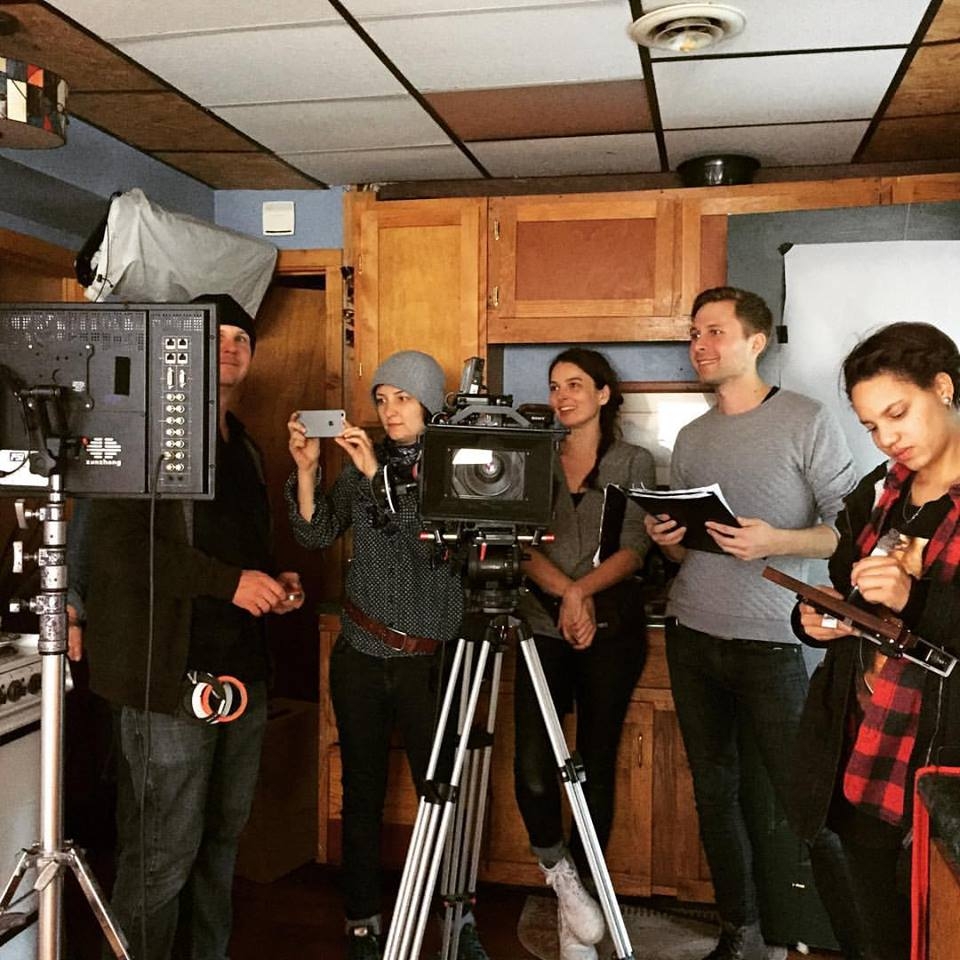
“My biggest lesson is that no two people will agree on what is working or not working in your film. The temptation is to shut out any of the voices with which you disagree. But then, a more difficult way is to put uncomfortable feedback on your timeline and sit with it for a day, watch it on the big screen and then decide who is right. It still surprises me, when I am indeed right.” -David Stein
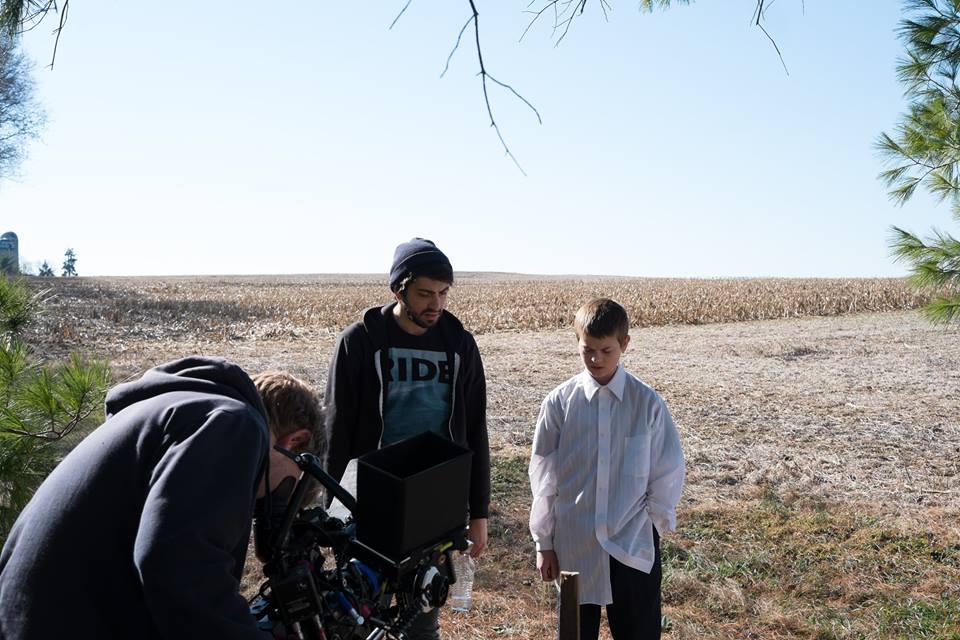
“It will take twice as long as you think it will to get the cow to stay in place. The chicken just can’t be bothered. The children will make the cow and the chicken seem like trained actors. And It’s all worth it.” -Tony Koros
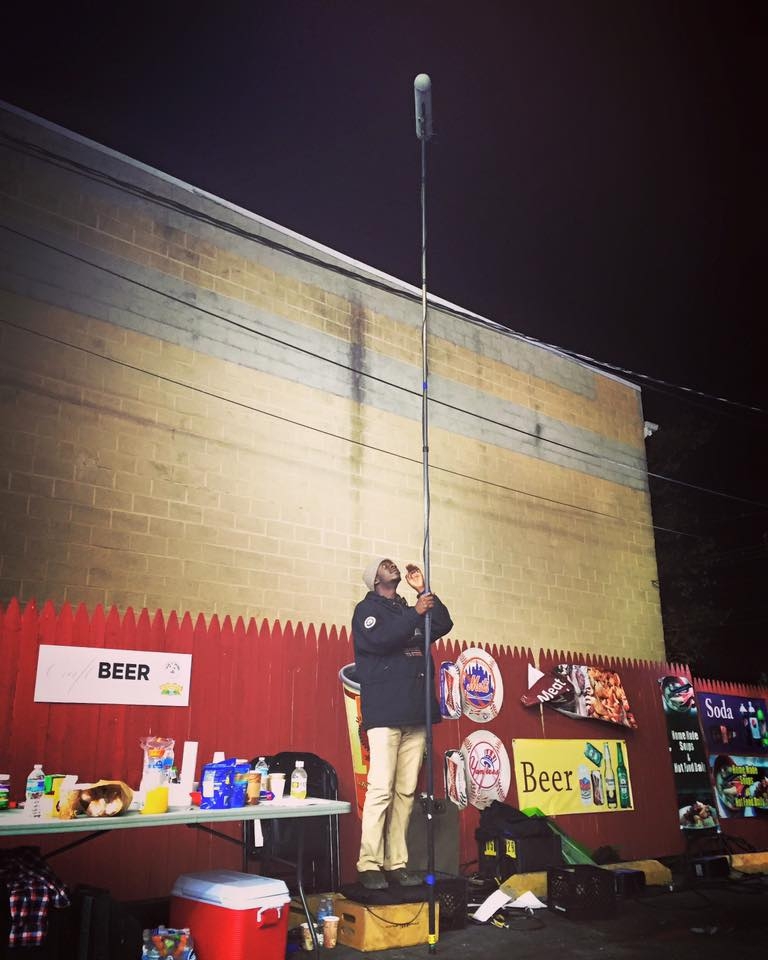
“I learned so much about authenticity and trusting my gut as a filmmaker. There’s so much going on around you on set, you have to be able to align with your true north and tune everything and everyone else out. I’ve learned to always question whether my character’s lines, actions, outfit, surroundings, etc. are realistic to each moment of the script. Authenticity is everything.” –Raven Jackson
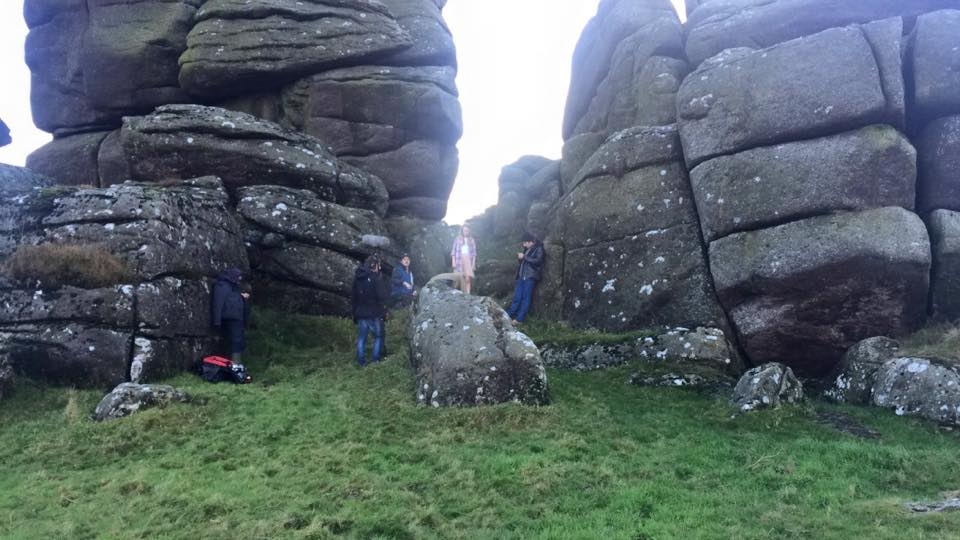
“My second year film was quite the big production. Whereas I'm proud of how I organized the project to run smoothly (during pre-production and on set), I wish I had given myself more limitations, in terms of scope. I believe that I've become a much better filmmaker because of the mistakes I made on my second year film.” –Stephanie Bollag
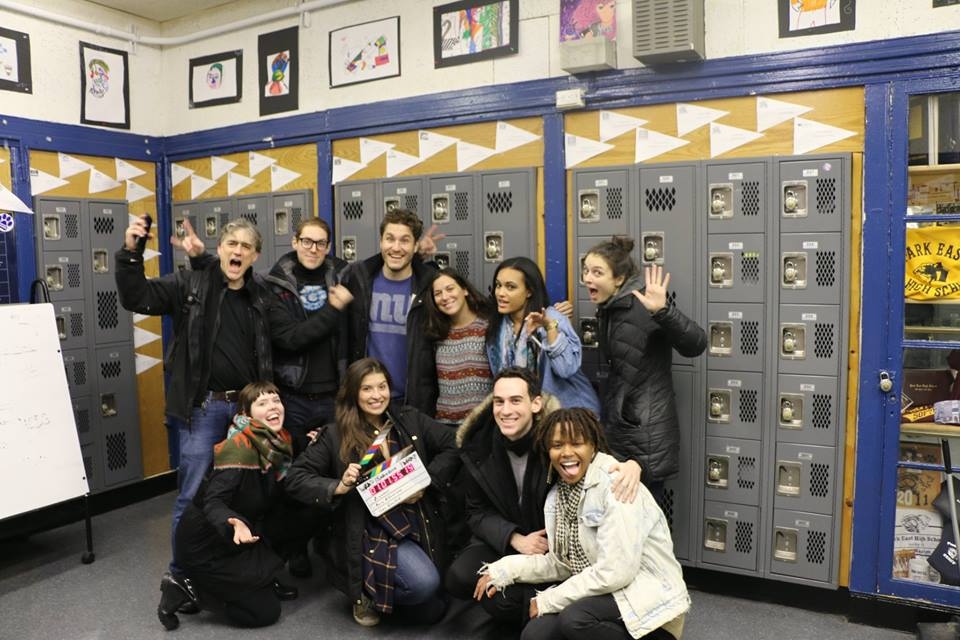
“I took up a monumental task when I decided to shoot a road movie in Colombia. We had 10 locations in four different towns in five consecutive days. However, the experience was invaluable, and the scope and level of production that we achieved with a crew of six is nothing short of astounding. I learned that I could take on big projects and its given me the confidence to take on an ambitious sci-fi project for my thesis.” –Alfonso Jaramillo
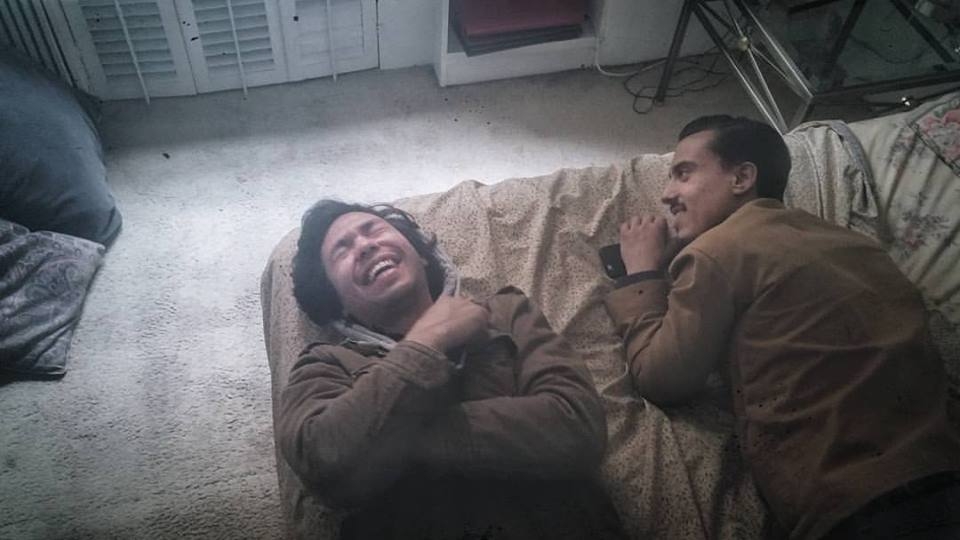
“My biggest lesson was to take care of myself. A healthy filmmaker will have a healthy process of making films.” -Sarra Alshehhi
“Everything is possible. Film becomes an independent universe once you turn on the camera to make the first shot.” -Nataliya Babenko
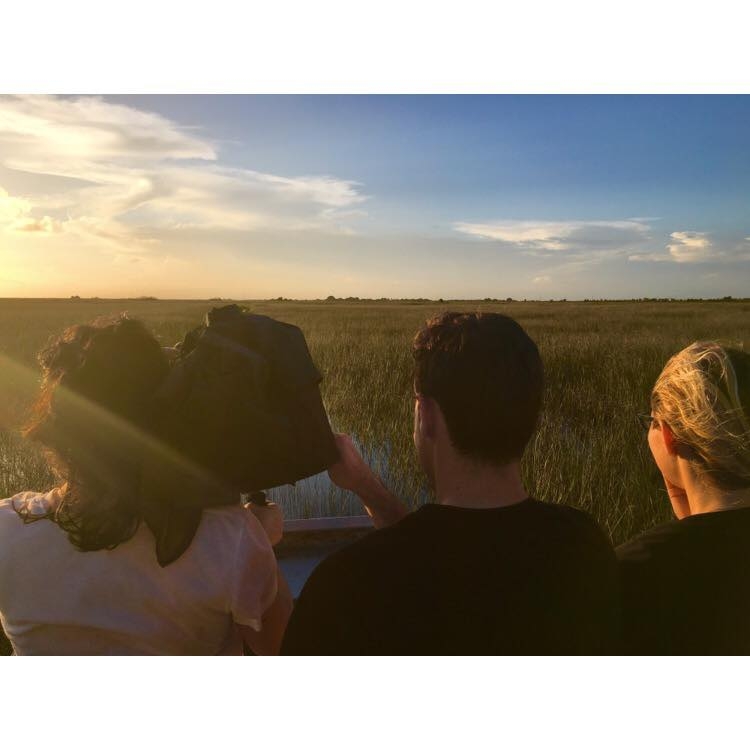
“Getting over myself.” -Jeff Verlanic
“This took me a while to accept, because I’m not a huge fan of improv on shooting days and I hate spontaneity, but when it comes to actually being on set, sometimes you have to throw away all the meticulous plans you had for the scene, and just go with whatever your gut tells you are the ‘true’ emotions the characters should be expressing and then go from there in terms of how to go about showing that.” -Omar Iturriaga
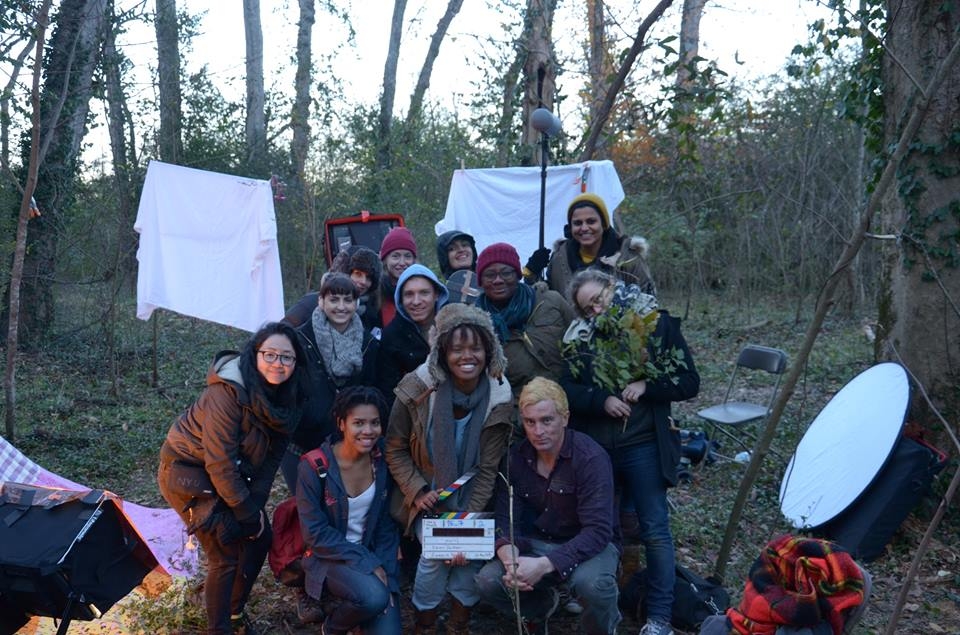
“I learned (and am still learning) so much from the experience, but a couple of lessons that stick out are how important it is to trust your instincts and be confident, but also to never be afraid to accept mistakes, make yourself vulnerable, and ask for help. I also was reminded why it is important for me to tell stories that feel personal and meaningful, because the rollercoaster of emotions involved in making the film are worth it. It is beautiful to be able to share a piece of yourself or stories about people you care about with others” – Maria Altamirano
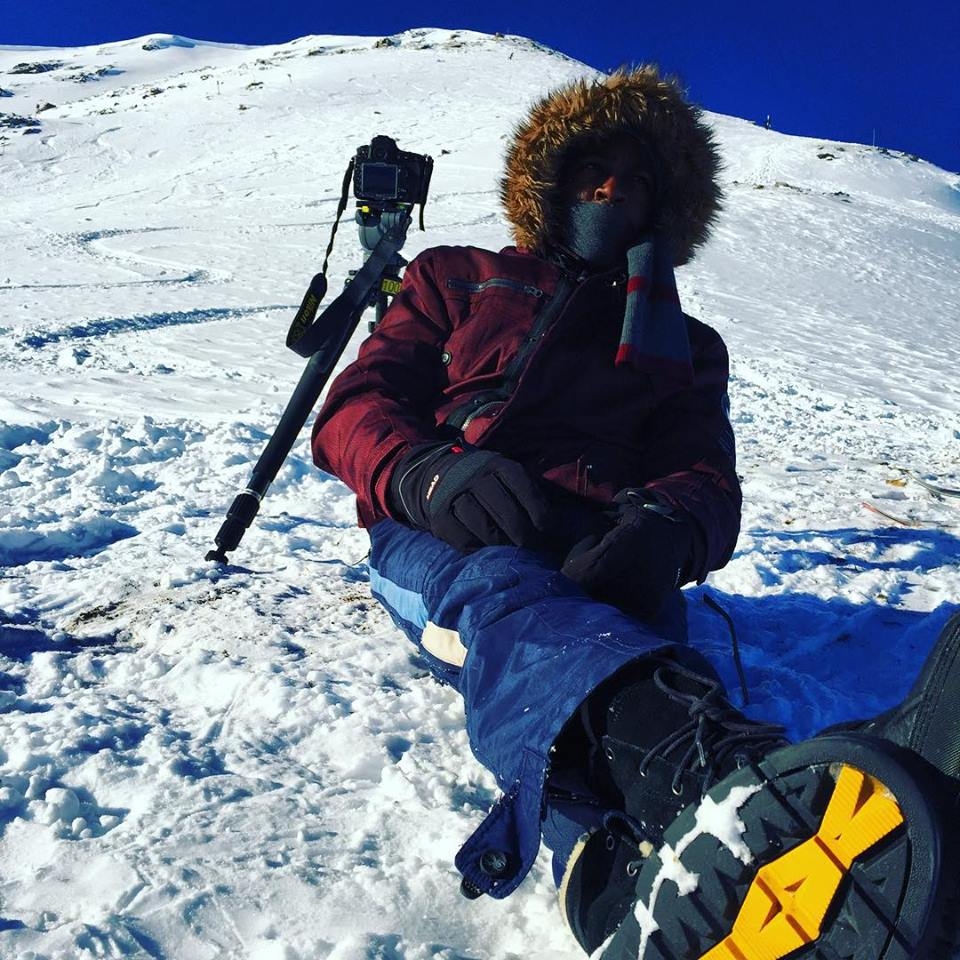
“My biggest lesson in shooting Walk For Me was that I can mix documentary and narrative styles of filmmaking together successfully. My biggest triumph was working with my community. I had a cast of predominantly non-actors. Further, these folks are the stars and statements of NYC’s Ballroom scene. The thing I learned most of all is the power of opportunity. Most of the folks in my film have never had the opportunity to be in a movie. I was overwhelmed with how great each and every one of them was. They worked hard and elevated my film. It’s incredible what opportunity can do.” -Elegance Bratton
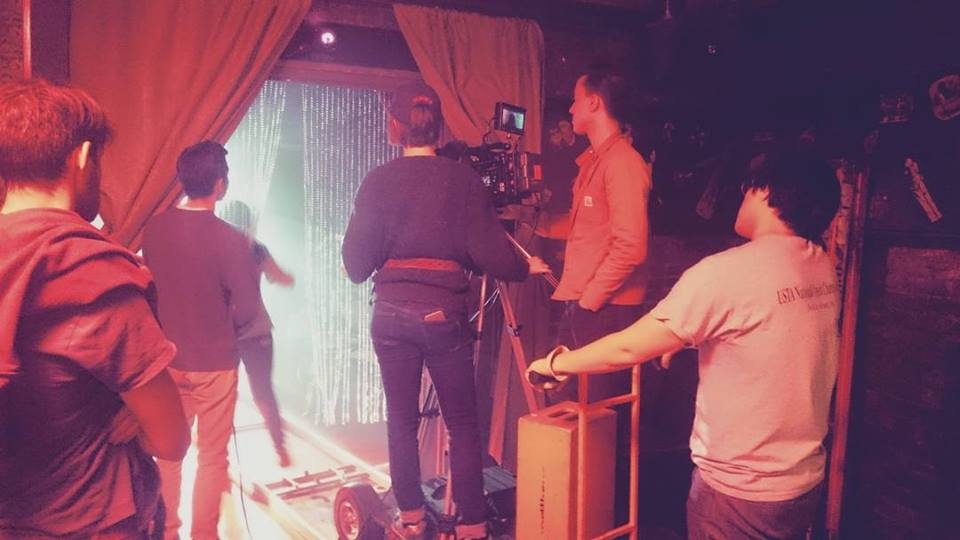
“Returning to my childhood home and shooting a personal story was a huge triumph to me. Being able to communicate my vision and leading a big team to help realize it was a big challenge, but sitting in the editing room and seeing my words come to life in a cinematic experience was the biggest reward. I learned so much from this film.” -Rikke Louise Schjødt
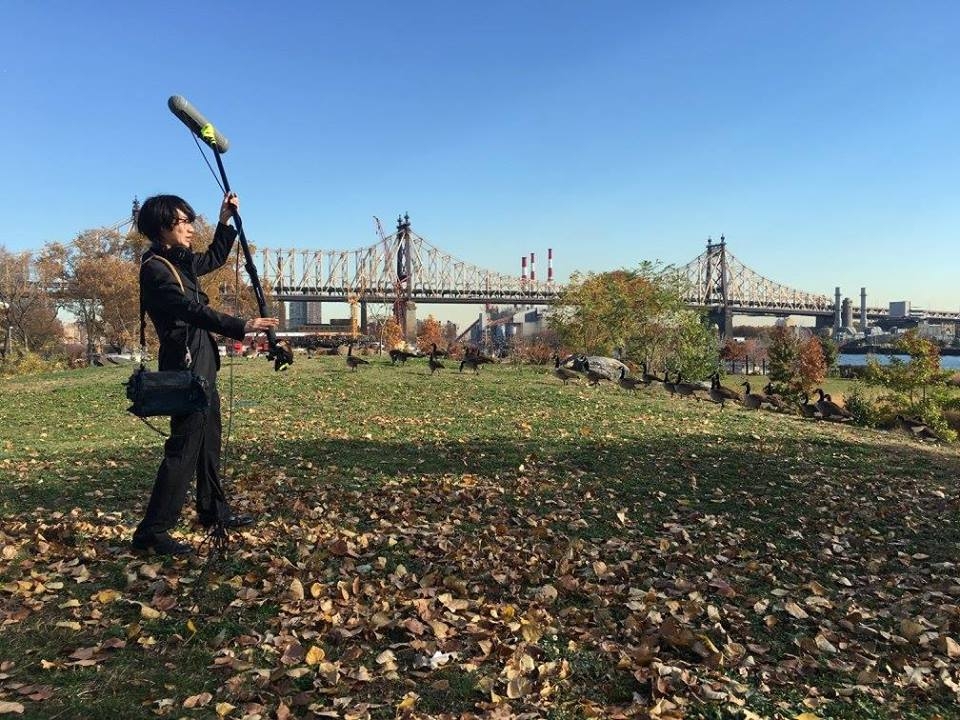
Why should people attend the Showcase?
“You will never experience so much diversity in one showcase. So many personal stories that are meant to touch you. The fact that this is still free and available in one show is a great thing. Also, all of us have put a lot of work into these films for months and can't wait to celebrate them with the audience.” -Sarra Alshehhi
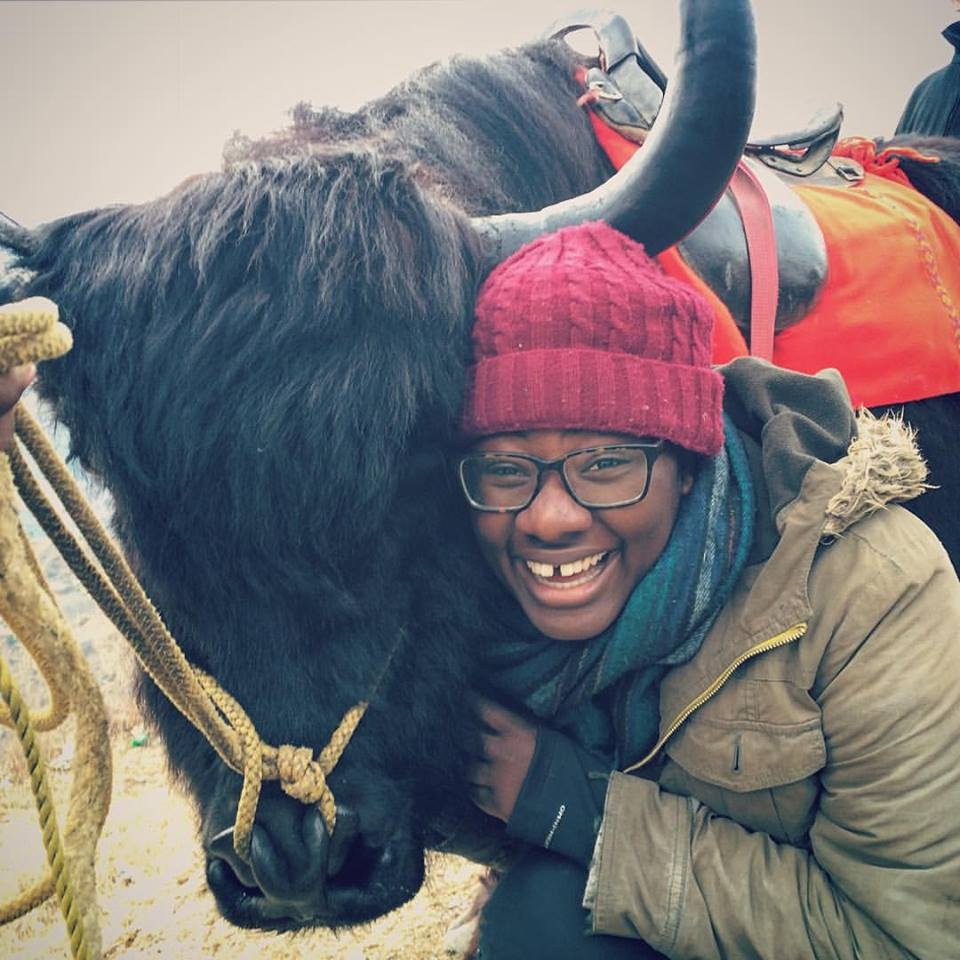
“To celebrate the struggle and the beauty and the chaos oh, lord.” -Jeff Verlanic
“There will be an amazing group of dreamers and brave storytellers to share the worlds with you that you didn't even think existed.” -Nataliya Babenko
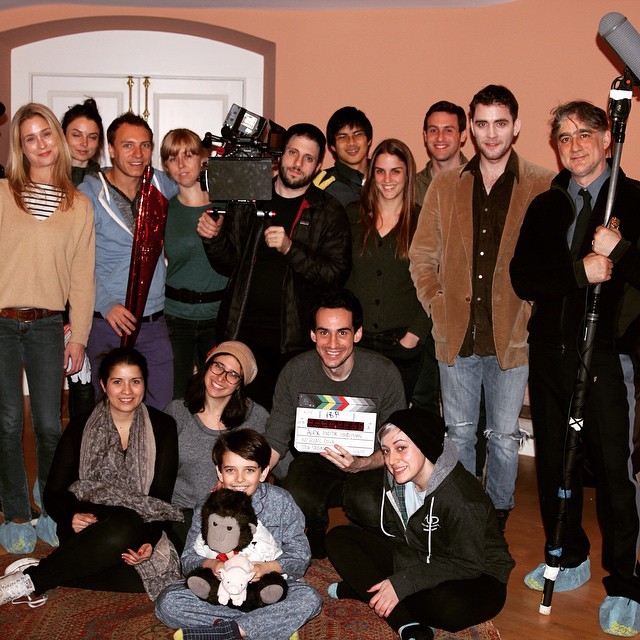
“Come out if you want to see young artists forming themselves. None of these films are perfect, no one of us a master, but there is reflected in the work here, concerns about the interior and wide world as surprising and diverse, and as quirky as we are. We are from all over the world. Come see us, you’ll love us." –David Stein
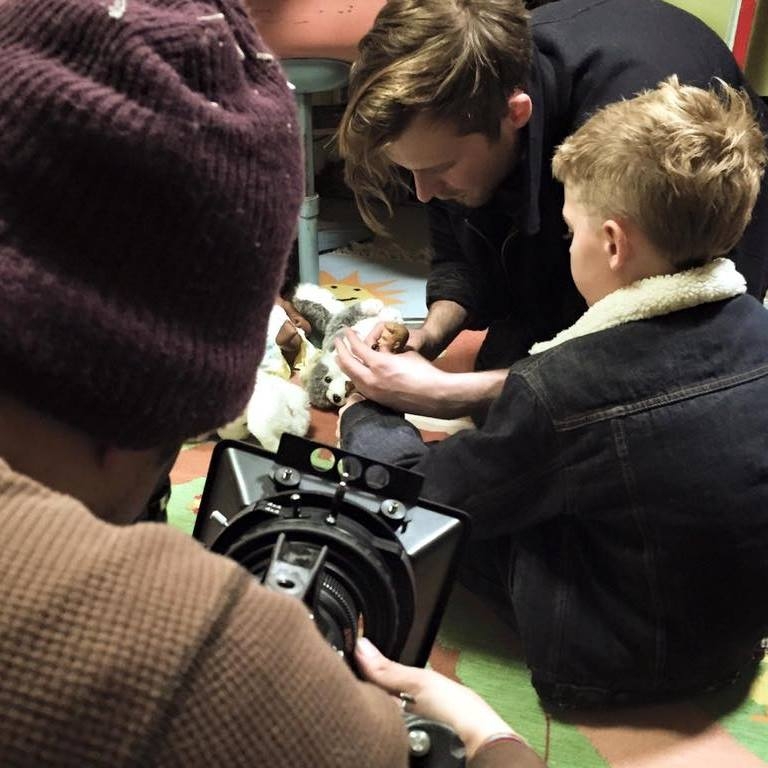
“People should be coming to our showcase and ideally see all the films, because not one film is like the other. If nothing else, I find that this year’s selection is clearly very distinctive.” –Stephanie Bollag
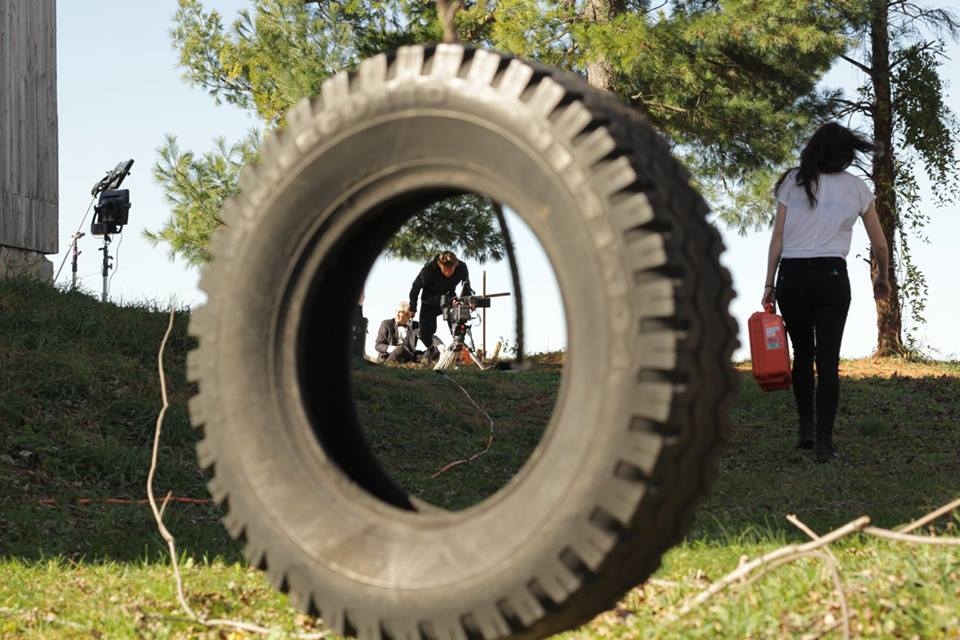
“Because all our movies come from genuine people with genuine fear and genuine voices. Every film you see at the Showcase is unique and couldn’t have been filmed by any other person; this inherent truth reveals itself more and more with each viewing. Those are the most precious of films. “ –Alfonso Jaramillo
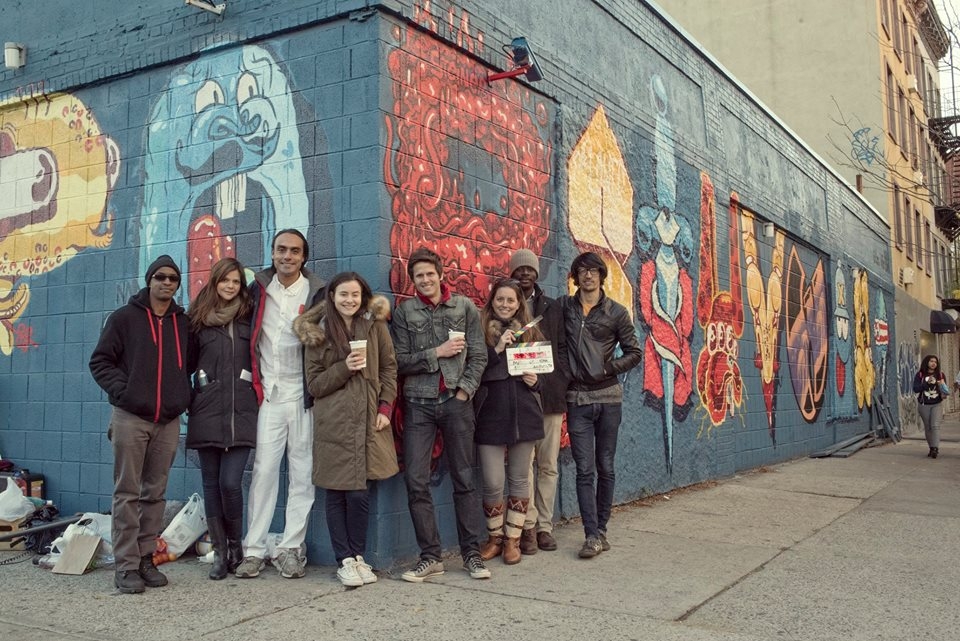
“The showcase is a free trip around the world!” -PJ Norton
“Because behind these films are hard work, creativity, love, hate, exhaustion, tears, and passion that all came together to create beautiful stories that will not only entertain you but also surprise you." -Maria Altamirano
“This is an amazing group of very diverse and talented people—each with their own unique voice. The films are all on a certain level very personal, and it really shines through on the big screen.” -Rikke Louise Schjødt
